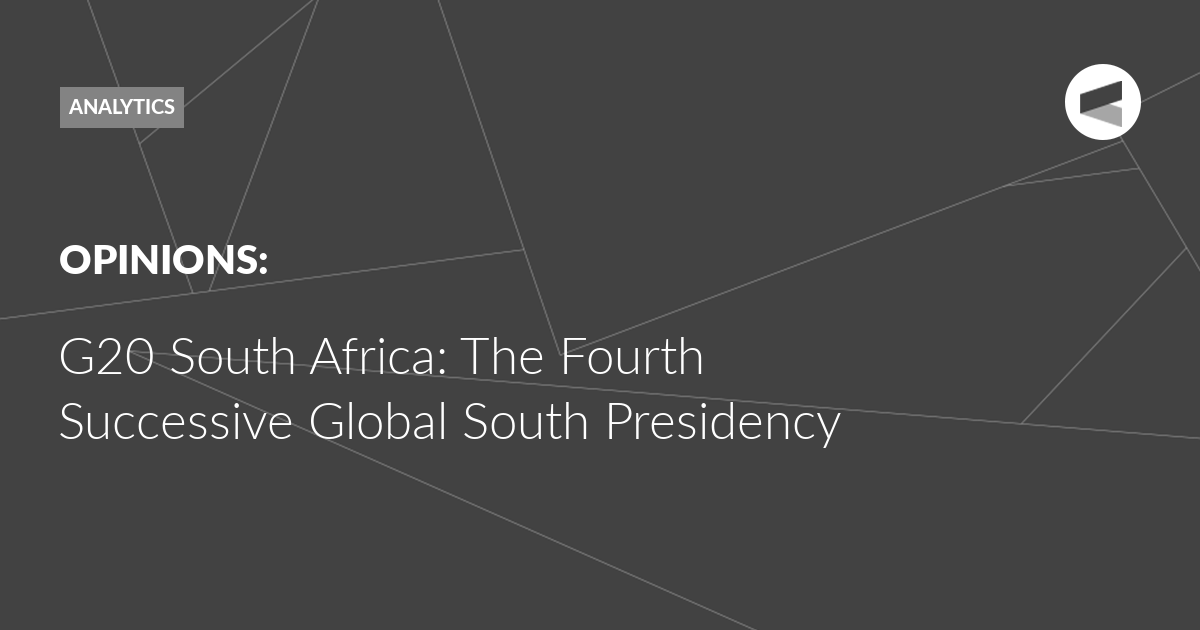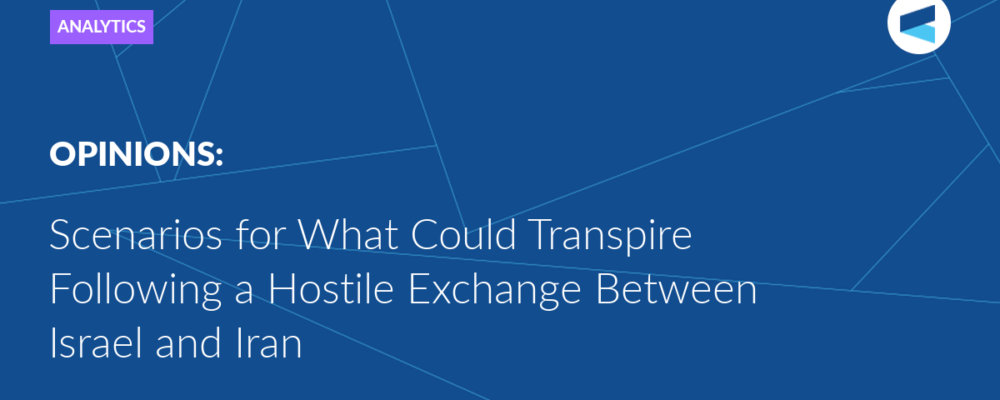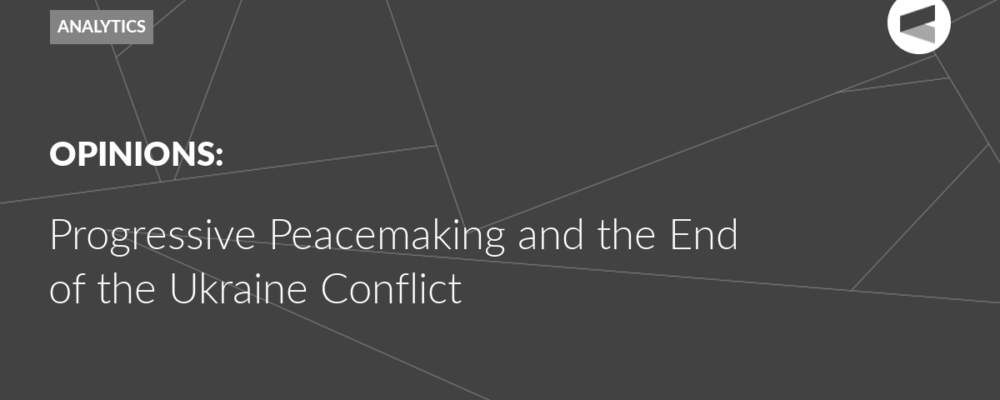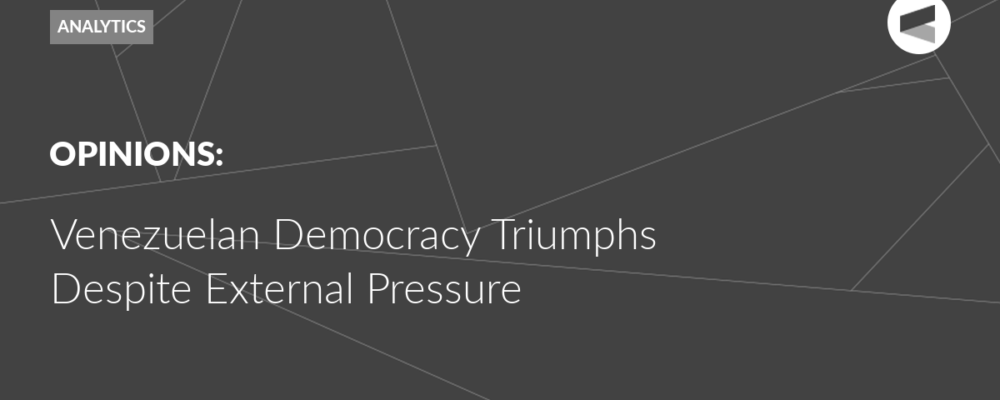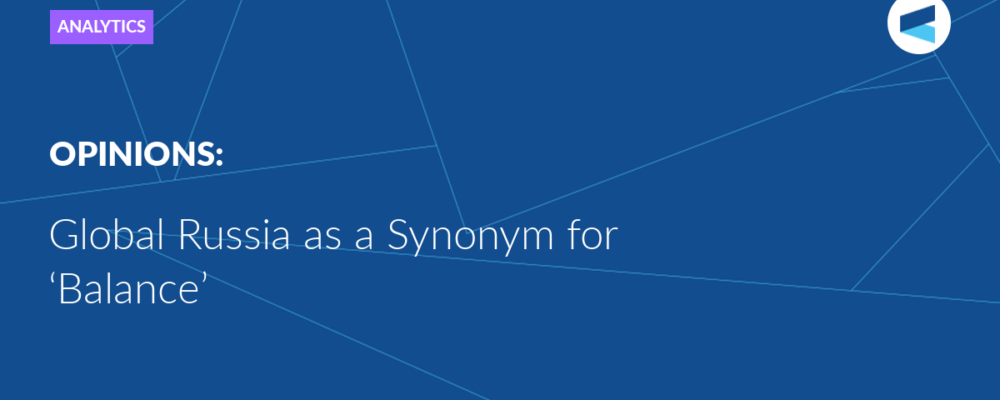Two major areas for consolidation leading from the Brazil G20 are a major motivation for reviewing past agreements and declarations, as well as the extent of past G20 resolutions: The Global Alliance Against Hunger and Poverty and the incorporation of the voices of civil society and other engagement groups to make sure that no area of society is left behind, Mikatekiso Kubayi writes.
South Africa assumed the presidency of the G20 on December 1, 2024, marking the start of the fourth successive Global South presidency, the first presidency by an African state, and the second year of the African Union’s full membership. Its theme is “Solidarity, Equality, Sustainability”. It is well worth acknowledging that this will be an important G20, continuing from Brazil’s great effort and success. Continuity is of great importance, particularly in the urgency to find lasting sustainable solutions to global challenges, especially those faced by developing economies. The wheel has already been invented, and it enjoys posterity. With every revolution of the wheel, each G20 presidency, a set of agreements, resolutions, and declarations are communicated to the world. These are declarations aimed at finding solutions to challenges and providing policy leadership for collective action to achieve this common goal. The South African presidency of the G20 will seek to explore the extent of implementation of previous agreements and seek solutions.
The importance of the successive Global South presidencies
The recent report by the United Nations on the scale of public debt and the extent of its devastation has been a subject of much urgent discussion and reflection by leading thinkers throughout the world. This difficulty, faced by developing economies that seek financing for infrastructure, industrialisation, and climate action, is such that at times debt servicing costs are 12 times those faced by developed economies. South Africa’s G20 presidency will correctly be looking at structures such as a cost of capital commission.
Its priorities include
1) Inclusive Economic Growth, Industrialisation, Employment, and Inequality, 2) Food Security, and 3) Artificial Intelligence and Innovation for Sustainable Development. South African President Ramaphosa committed the G20 to build on the work done and results achieved by the Brazil-hosted G20 summit on critical issues such as food security. In keeping with the sustained momentum of Global South presidencies on issues faced by developing economies, the T20, in support of the G20 presidency, seeks to increase direct dialogue and communication between think tanks, academia, and researchers through its five Task Forces.
Financing is a matter of great concern and urgency. Calls for reform of the global financial architecture, such as in the High-Level Advisory Board (HLAB) report for the UN Secretary-General (2023), Pact for the Future (2024), the G20 Progress Report Implementing the Recommendations of the G20 Independent Review of Multilateral Development Banks’ Capital Adequacy Frameworks (2024) and more efforts seek to achieve this imperative. Other efforts include responses by the Multilateral Development Banks, such as their joint commitment to climate action and MDBs Working as a System for Impact and Scale (2024).
The imperative of pandemic preparedness is a potential beneficiary of G20 action on this issue. The unequal rate of recovery from the COVID-19 pandemic indicates the scale of inequality among states and the capacities of economies, with those on the margins of global value chains suffering significantly. Industrialization and innovation are, therefore, crucial to addressing this challenge, and they require financing.
The African Union in the G20
The African continent continues the battle once fought by the founding fathers of the OAU, a battle for complete sovereignty. Sovereignty in industry, technological innovation, culture, and other spheres. Its $1.4 trillion economy and 1.5 billion population (Forecast to reach 2.5 billion in 2050) and the many centuries of struggle have finally scored access to this eminent international body for economic cooperation. As the first G20 Summit in Africa, the G20 South African presidency, working very closely in partnership with the AU, seeks to unlock the potential of developing economies, especially in the Global South and Africa.
This region also tends to receive the lowest inflows of foreign direct investment and suffers significant illicit financial outflows. The reform of the global financial system also includes consensus on a global tax convention and the solidarity needed for its effectiveness. It is, of course, for this and many other reasons that the Global South presidencies of the G20 have championed solidarity. This same solidarity helped end colonial occupation, but has not yet succeeded in helping the continent achieve complete sovereignty. Russia, China, and India, all members of the BRICS bloc and the G20, are examples of such sovereignty.
Indonesia, India, and Brazil
managed to achieve a consensus on the development of local currency capital markets. This will be an important feature of domestic resource mobilization to add to the much-lobbied foreign direct investment and external financing of development projects. To this end, Africa has an opportunity to further strengthen global solidarity and the resolve to realise tangible progress for this issue. On this, and with all the many agenda successes of developing economy interests, the G20 South Africa presidency would try to consolidate.
The following two major areas for consolidation leading from the Brazil G20 are a major motivation for reviewing past agreements and declarations, as well as the extent of past G20 resolutions. 1) The Global Alliance Against Hunger and Poverty, which researchers contributing to Task Force 4 of South Africa T20 will relish. 2) The incorporation of the voices of civil society (C20) and other engagement groups to make sure that no area of society is left behind will be an important attribute.
What is to be done?
1) Peace and security are an important attainment. Returning to the space of exclusive focus on development
and a departure from conflict and aggression is important. For the world to achieve the SDG targets, of which, to date, only 17% are expected to be met by the deadline, resources must be an exclusive preserve of development aims. By refocusing resources away from conflict and towards development, many lives may be improved. The world watches decisions on conflict, its impact, and the massive investments to keep them going in real-time, while many struggle for basic social assistance. A negotiated, collectively owned, and sustainable peace is a global imperative and an obligation of the UN charter.
2) Global solidarity: to do what the world knows is right for the advancement of higher HDI scores. Global health challenges require it; global hunger and poverty require it, and the attainment of a more equitable global governance system requires it.
The Valdai Discussion Club was established in 2004. It is named after Lake Valdai, which is located close to Veliky Novgorod, where the Club’s first meeting took place.
Please visit the firm link to site


